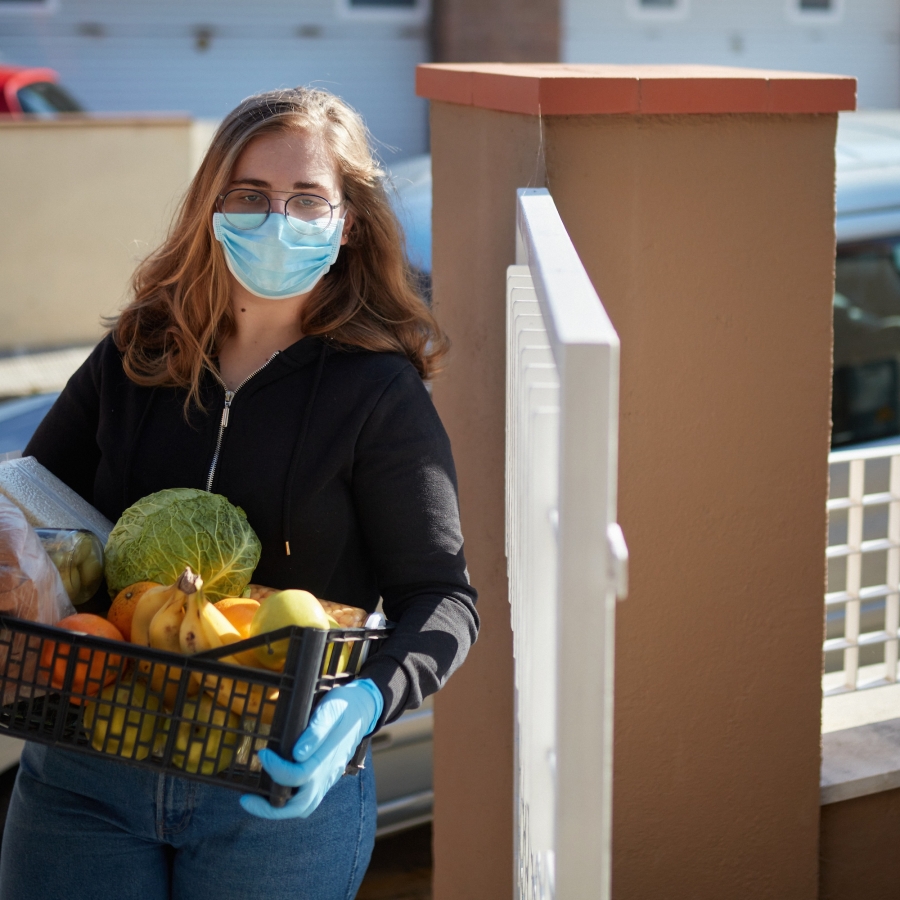
Pandemic EBT
The Pandemic Electronic Benefit Transfer (P-EBT) program was designed to provide cash assistance for food to students who lost access to school meals during COVID-19. If 1) the child would have received free or reduced-price meals due to low household income, 2) the child attended a school that provided free school meals to all students, and/or 3) the school operated with reduced hours for at least 5 consecutive days, a child received P-EBT benefits. In Michigan, children attending some preschool programs that provided free meals, such as Head Start, were also enrolled in P-EBT.
Benefits were given on the recipient's existing Bridge Card or through a newly issued EBT card. P-EBT benefits were similar to SNAP/FAP benefits and could be used at authorized retailers when purchasing eligible foods. Initially, P-EBT funds were provided to families through the end of the 2019-2020 school year, but the program was fortunately extended into subsequent school years.
P-EBT provides a great example of creativity and flexibility in ensuring children have sufficient access to food during periods when they’re not attending school. Research on the program demonstrates that it contributes to improvements in Michigan families’ food security status and helps families purchase healthier foods than they would have otherwise.
P-EBT Participation Among Feeding MI Families Participants
75% of parents responded that they had used P-EBT and participation was fairly similar across families of varying urbanicity, race/ethnicity, US nativity, and disability status. However, only 61% of families without safe, consistent housing participated in P-EBT compared to 76% of families with safe, consistent housing. This difference may arise from the fact that schools provided state agencies with student-level information to get families their EBT cards. Families with inconsistent housing may have had an outdated address on file and thus never received their benefits.
What We Learned
When asked how P-EBT could be improved, parents commonly three themes: increasing benefit amounts, improve program consistency, and expand the scope of the program to include other periods, including continuing beyond the pandemic. Many expressed frustration with communication regarding eligibility, benefit arrival, and how much would be provided.
Recommendations
Stigma and Discrimination are Central Barriers to Food Security
- As with SNAP/FAP, parents requested that EBT cards have a discreet design to reduce negative comments from other grocery shoppers or retail staff.
Small Modifications Make Big Differences to Families
- With Summer EBT becoming established in Michigan, it is essential that all families are made aware of program eligibility, and the timing and amount of benefits. Lack of clarity and inconsistent awards made food budgeting difficult for families.
- Wherever possible, minimize the logistic barriers to activating and using the Summer EBT card. Parents struggled with needing to get online and using a password to activate the card.
Families Want Dignified Access to Fresh and Safe Produce, Proteins, and Dairy Products
- Explore the possibility of connecting Summer EBT with Double Up Food Bucks to further stretch families’ benefits and increase children’s access to local, fresh produce.

